If you’re a horse owner, then every time spring and fall roll around you’re thinking about deworming. Yep, it’s that time of year again! You head over to FarmVet.com, pull up the dewormers page, and oh my…where to begin? So many options are available – how do you know what dewormer is best for your horse?
Stop the Guessing Game
In the past, parasite treatment recommendations were based on a rotational deworming schedule. Maybe you gave Panacur every spring and Duramectin every fall. However, the development of parasitic resistance to deworming compounds has encouraged a different approach. Now, vets recommend a fecal test to determine which dewormer compound you should use and how often your horse requires treatment. A fecal test will help you pin down the treatment schedule your horse (or herd) needs and the efficacy of your treatment.
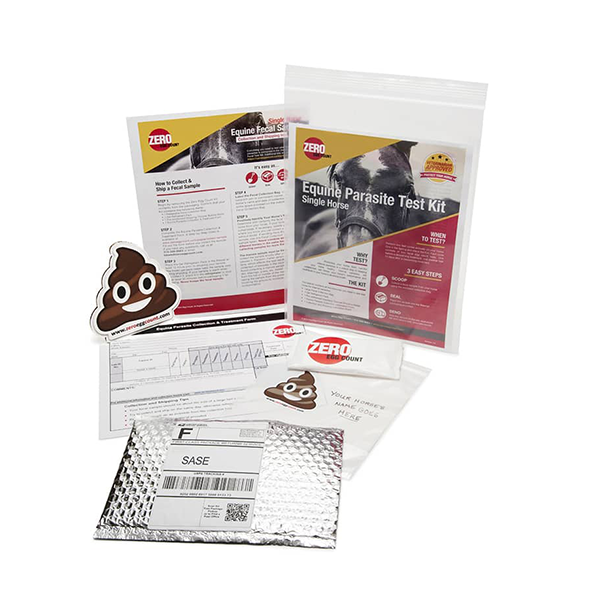
Zero Egg Count’s Equine Parasite Test Kit makes it easy to complete a fecal test and gives you comprehensive results revealing the type and amount of parasite eggs present in your horse’s feces. You can then determine the schedule and specific needs of your horse. This will result in an effective treatment that will help avoid parasitic resistance.
Make A Plan
So, you have the results of the fecal test… now what? The first thing to take note of is the egg count. This will help you determine how often your horse requires treatment. Horses with a higher egg count (categorized as “shedding rate”) will need more treatments throughout the year. If you own more than one horse, note that each horse’s schedule may vary from the other. Share the results of your Equine Parasite Test Kit with your veterinarian for a recommendation on treatment. Zero Egg Count’s kit will also reveal the type of parasite eggs present in your horse’s feces, revealing what you need to treat. Different brands of dewormers contain specific compounds that treat varying types of parasites.
Benzimidazoles
This class of compounds has been some of the most common dewormers for many years. But unfortunately, that has led to the development of some resistance. Still, these dewormers have their place. They are the most common choice for young horses and even foals.
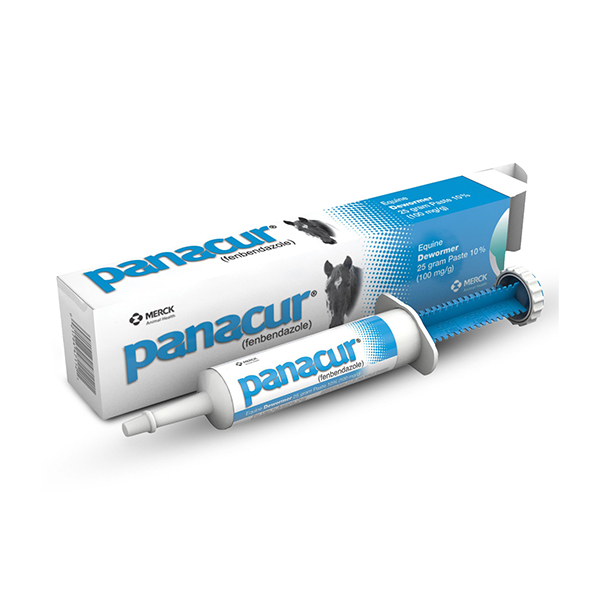
Panacur contains the benzimidazole fenbendazole. Fenbendazole is the treatment of choice for gastrointestinal parasites such as ascarids (roundworms), commonly present in young horses. Safe-Guard also is a common fenbendazole, which is beneficial for treating later-stage or large strongyles and ascarids.
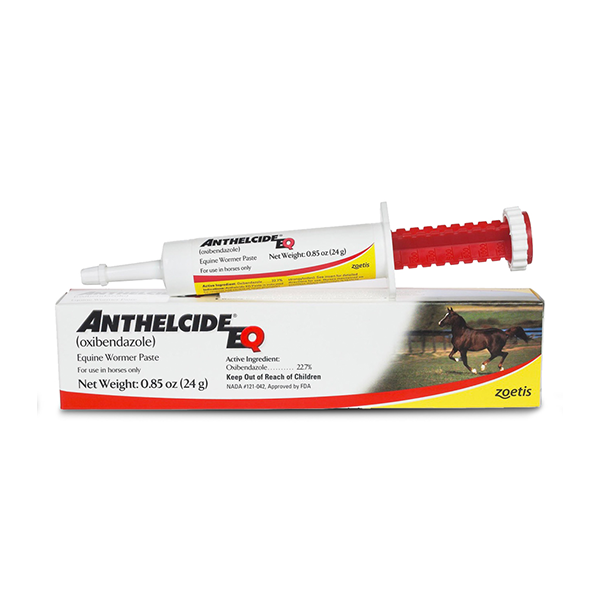
Another dewormer of this class is Anthelcide EQ from Zoetis. This dewormer contains oxibendazole which successfully treats large strongyles, ascarids, pinworms, and threadworms.
Pyrantel
This class of dewormer is less effective against strongyles but has its benefits against other types of parasites. Pyrantel will help kill later stage or adult parasites and when given at a double dose can also kill tapeworms.
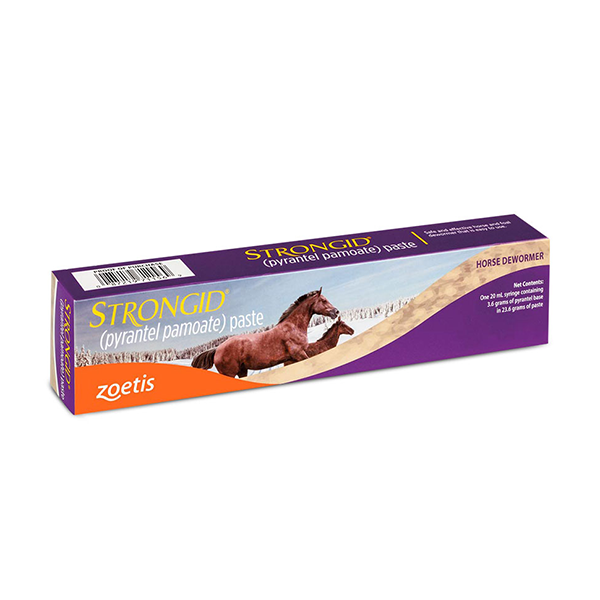
Strongid is a well-known Pyrantel that is best when used in a deworming program containing other forms of treatment. It is available in a pellet form for daily feeding to supplement your other dewormers but note that your horses should not be on this for life as it can lead to resistance.
Macrocyclic Lactones
These compounds are Ivermectin and Moxidectin. These are the most potent dewormers, killing all stages of both internal and external parasites, including bots. They currently have the least amount of parasitic resistance.
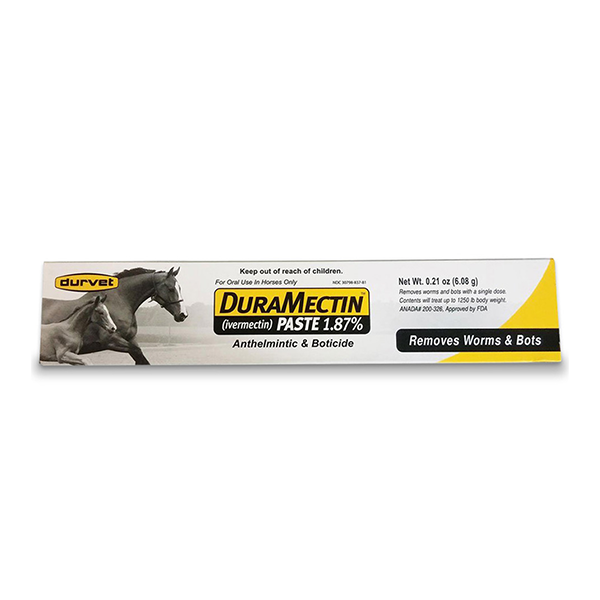
Ivermectin is arguably the most common dewormer used today, and rightfully so. Only a small amount is necessary to kill just about any parasite that may affect your horse.
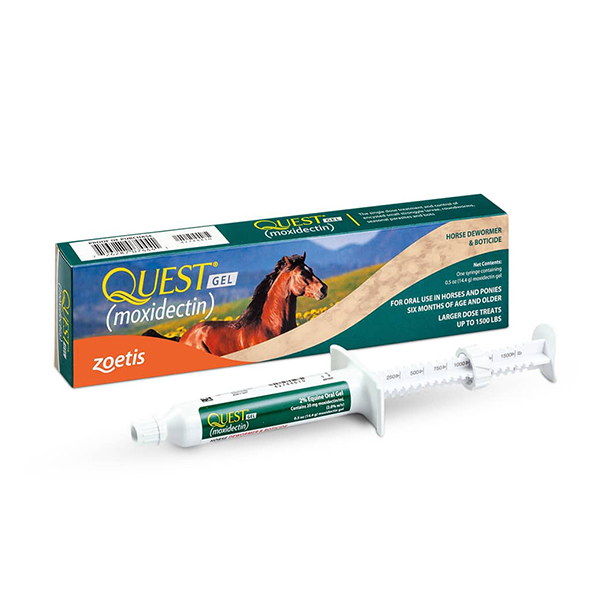
Moxidectin such as Quest is the best treatment for small strongyles and is often recommended in the fall. If your horse is in the high-shedding category, this would likely be the best option for your last deworming treatment for the year.
Praziquantel
This deworming compound only treats tapeworms. Use this dewormer once a year in the fall or only as your fecal test results indicate. Praziquantel comes in a combination with macrocyclic lactones.
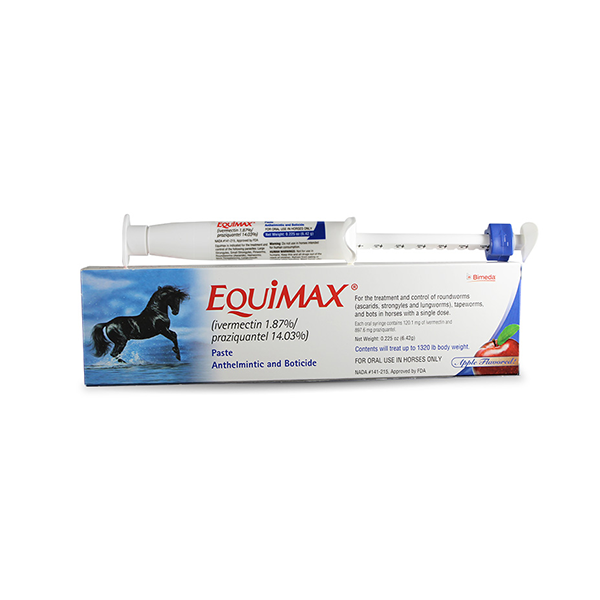
EquiMax and Zimecterin Gold contain ivermectin with praziquantel. These are great options for a well-rounded treatment, or if your horse’s fecal test shows a presence of tapeworms and other parasites.
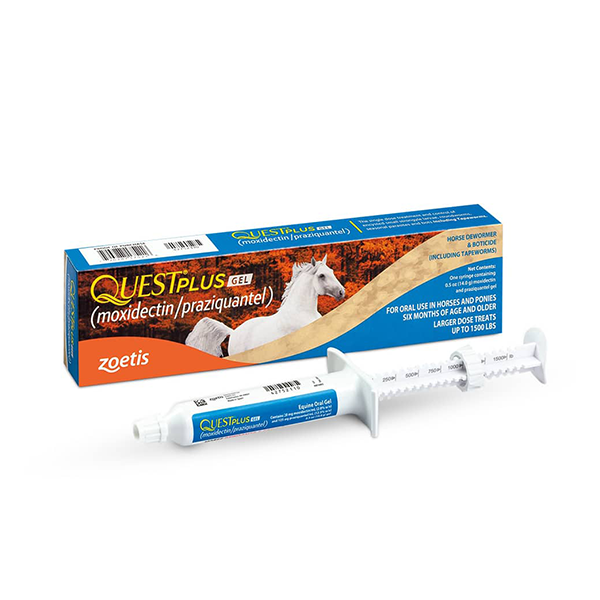
Quest Plus is moxidectin with praziquantel. Another well-rounded option, this dewormer is especially effective against small strongyles and tapeworms, which are the parasites of the most concern in adult horses.
Test and Re-Test
Now that you have an overview of the different deworming compounds, you will know what dewormer to choose based on the initial Equine Parasite Test Kit results. Complete this test again before your next deworming session to both ensure your previous treatment was beneficial, and to determine the next treatment. As a reminder, consult with your veterinarian regarding the fecal test results to ensure your horse is on the right deworming schedule.
Shop Now
Ready to get your horse the dewormer they need? Shop HERE! Also, you can shop ALL of our products at FarmVet.com 24/7 or call one of our friendly Sales Associates at 1-888-837-3626. You can also email your order to info@farmvet.com.
Parasites can also affect our beloved pets. Read our blog HERE to find out the best ways to protect your dog’s heart.


2 Pingbacks